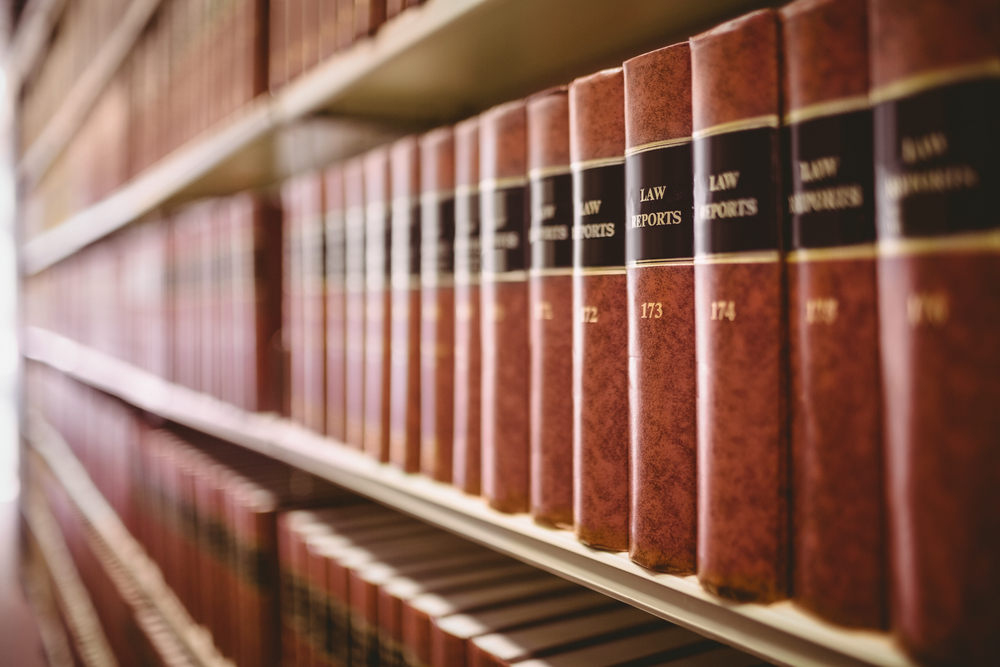Let’s cut to the chase: when you’re on the hunt for legal knowledge, not all treasure troves are created equal. The best law libraries stand out with their vast collections and state-of-the-art facilities, turning them into hotspots for students, professionals, and anyone eager to dig deep into legal wisdom. These hubs aren’t just about dusty books; they’re gateways offering public access to case laws, cutting-edge digital commons networks for research without borders, and cozy study nooks that spark collaboration.
Dive in as we spotlight Columbia Law School’s legendary library among others across America where self-help books meet supreme court records – places where your legal queries find answers. With pro tips from seasoned law librarians woven throughout this exploration of top-tier institutions like Yale and Harvard Law Schools’ libraries – you’ll come away informed on navigating today’s rich landscape of legal resources.
Table of Contents:
- Prestigious Law Libraries Across the United States
- Public Access Law Libraries Offering Extensive Resources
- Innovative Research Facilities in Top University Law Libraries
- Specialized Collections within Elite Academic Libraries
- The Role of Librarians in Enhancing Legal Research
- Leveraging Online Resources from Leading Legal Information Centers
- Integrating Study Spaces into Modern Legal Education Environments
- Cultivating Accessible Legal Learning through Public Workshops and Seminars
- Conclusion
Prestigious Law Libraries Across the United States
Imagine a treasure trove of legal knowledge, each volume offering insights into centuries of jurisprudence. That’s what you’ll find in some of America’s most prestigious law libraries. These institutions are more than just rows upon rows of books; they’re vital hubs for students and legal eagles alike.
Arthur W. Diamond Law Library at Columbia Law School
The Arthur W. Diamond Law Library, nestled within Columbia Law School, is a bastion for those immersed in international law and Supreme Court cases—truly an academic feast. With its vast array of resources, this library stands as one of the country’s top-tier research facilities catering to university law scholars’ diverse needs.
Columbia’s commitment to legal education shines through with their collection that spans continents and eras—a testament to why it’s considered among the crème de la crème.
Leo T. Kissam Memorial Library at Fordham University
Fordham University boasts the Leo T. Kissam Memorial Library—a haven where law center discussions spark change and future leaders are molded. Here lies a network rich with case laws, perfect for that pivotal moment when theory meets practice on campus grounds or during heated moot court battles.
This library doesn’t just store information; it empowers minds by providing access around-the-clock, making sure whenever inspiration strikes—their doors are open.
Goodson Law Library at Duke University
In North Carolina lies another gem: Goodson Law Library at Duke University offers much more than your standard study room setup—it provides key tools essential for navigating complex layers within our public access system across various states while upholding high standards worthy of American Bar Association recognition.
Duke fosters innovation through group study spaces equipped with state-of-the-art tech meant not only to educate but also connect budding jurists from different walks as they journey together towards excellence under one roof filled with possibilities—and yes—lots and lots of books.
Dive into America’s top law libraries, where books unlock centuries of legal wisdom and fuel the ambitions of students and pros alike.
Columbia’s Arthur W. Diamond Law Library is a treasure for international law scholars, offering world-class resources in a historic setting.
Fordham’s Leo T. Kissam Memorial Library blends study with practice, providing 24/7 access to shape tomorrow’s legal trailblazers.
Goodson Law Library at Duke champions innovation with tech-savvy spaces for collaborative learning among future legal experts.
Public Access Law Libraries Offering Extensive Resources
The pursuit of legal knowledge isn’t confined to the walls of a law school. Public access law libraries are treasure troves for anyone looking to get their hands on government documents, sift through case laws, or simply indulge in the world of public law. These libraries don’t play favorites; whether you’re an aspiring jurist at Columbia Law School or just someone with a burning question about American Bar Association standards, they’ve got you covered.
Supreme Court Law Library in Richmond County
In New York State’s bustling corridors of justice, the Supreme Court Law Library stands as a beacon for those seeking enlightenment without barriers. With resources that can turn even novice researchers into seasoned sleuths in online databases, this library is open and welcoming to all comers – from hardened legal professionals eyeing up court rules to curious minds exploring international law intricacies.
The library’s extensive collection is more than just books on shelves; it’s an arsenal equipped with everything needed for comprehensive research – including detailed guides written by expert librarians who know their way around every nook and cranny of legal lore. It also serves as proof positive that valuable knowledge shouldn’t be tucked away behind ivy-covered walls but should be free-flowing and accessible.
New York courts recognize this ethos strongly – there’s quite literally a list boasting numerous public access libraries across New York State, showing commitment towards transparency and education within its judicial framework. If navigating legalese feels like decoding hieroglyphics sans Rosetta Stone, these public spaces provide much-needed clarity through well-organized collections ranging from legislative histories to trial transcripts.
Ranging far beyond mere print material available during generous library hours, many institutions now offer digital platforms teeming with case studies and statutes ready for perusal right from your home screen — bridging gaps between traditional study rooms and our increasingly connected lives while supporting both individual efforts at self-study and group collaboration endeavors alike.
Don’t think law libraries are just for lawyers. They’re open to everyone, stocked with government docs and case laws, and ready to turn you into a legal eagle.
Richmond County’s Supreme Court Law Library in New York is your go-to spot for diving deep into the legal world without hitting a paywall.
New York courts shine light on their commitment to transparency by offering public access law libraries loaded with everything from legislative histories to trial transcripts.
Forget about library hours; today’s digital platforms let you swipe through statutes and case studies anytime, anywhere—perfect for both solo study sessions and group projects.
Innovative Research Facilities in Top University Law Libraries
Top university law libraries are more than just book stacks; they’re cutting-edge research powerhouses. At the heart of this evolution is Georgia Law’s Alexander Campbell King Law Library, recognized by The National Jurist magazine as a top national contender for its innovation and academic support.
Dedicated Study Rooms That Raise The Bar
A key feature setting these libraries apart is their dedicated study rooms. These spaces aren’t your typical quiet corners; think high-tech havens where legal eagles converge to brainstorm and collaborate. Equipped with the latest digital tools, students can dissect case laws or pore over research guides without missing a beat.
And let’s not forget self-help books lining the shelves—silent mentors ready to tackle any legal puzzle thrown at them. It’s clear that when it comes to blending tradition with tech-savvy amenities, these libraries mean business.
Finding Answers Faster With Advanced Research Guides
Gone are the days of sifting through endless catalogs manually. Now, custom-tailored research guides serve up relevant resources on a silver platter—a game-changer for both seasoned attorneys brushing up on public access law or first-year students deciphering complex government documents.
Navigating this ocean of information has never been easier thanks to intuitive platforms accessible right from each library’s home page—because who wants to waste time getting lost in data when there’s a legal history book waiting to be written?
Leveraging Librarians’ Expertise For Unmatched Support
Beyond bricks and mortar lie the true gems: librarians whose expertise turns daunting legal mazes into navigable pathways. Their know-how stretches far beyond mere catalog curation—they’re strategy wizards guiding researchers toward answers faster than you can say “case closed.”
Seriously, if there were superheroes for every field, law librarians would don capes because their skills save countless hours—and perhaps even sanity—for those knee-deep in legalese.
Visit network.bepress.com/law or explore broader topics at network.bepress.com main site. Here you’ll find thriving communities sharing insights across fields—a testament that modern law libraries are about connections as much as collections.
Top university law libraries are innovation hubs, with high-tech study rooms and digital tools that transform legal research into a collaborative adventure.
With custom research guides and expert librarians at your side, finding answers in the vast sea of legal info is now a breeze.
Dive into modern law libraries online to tap into communities where sharing insights goes hand in hand with top-notch resources.
Specialized Collections within Elite Academic Libraries
The Diamond Law Library at Columbia Law School is a treasure trove for those immersed in legal scholarship. With its special collections, it’s not just another library—it’s the academic equivalent of an Aladdin’s cave for researchers and scholars alike.
Diamond Law Library’s Special Collections
If you’re digging into international law or hunting down rare government documents, this place has got your back. The Diamond Law Library stands out with resources that are as diverse as they are deep. Think of it like the Swiss Army knife in your research toolkit—whatever obscure piece of information you need, chances are you’ll find it here.
Columbia isn’t playing around when they talk about catering to specialized research needs. You won’t just stumble upon a few dusty shelves; we’re talking rows upon rows filled with gems from all over the world. It’s like walking through history but with a legal twist—every book and manuscript whispering centuries’ worth of judicial secrets waiting to be uncovered by someone like you.
You might think such wealth would be locked away behind wrought-iron gates—but no. This bastion of knowledge swings open its doors wide, letting even mere mortals access treasures typically reserved for legal demigods. Just picture yourself leafing through ancient texts or tapping into databases so vast they’d make Google blush—all while being enveloped by that unmistakable aroma of old books mixed with ambition.
No wonder then that this collection is more than just stacks on racks; it’s an intellectual launchpad propelling curious minds towards new horizons in law and justice exploration.
The Role of Librarians in Enhancing Legal Research
Picture this: you’re knee-deep in legal research, surrounded by towering stacks of court rules and case law. But fear not. The unsung heroes of the legal world are here to save the day—law librarians. These gatekeepers of knowledge don’t just reshelve books; they are your VIP pass to navigating through a maze of databases with finesse.
Navigating Legal Databases with Expert Help
Let’s say you need advice on where to start your research journey. Law school librarians aren’t just walking encyclopedias; they’re also seasoned pros at dishing out top-notch research techniques that could rival any detective’s skill set. With their help, diving into complex topics becomes less about guesswork and more about getting pinpoint results.
Digging for specifics? A librarian might steer you toward an obscure yet pivotal piece from American Bar Association-approved resources or unearth some golden nuggets hidden within specialized journals—and all without breaking a sweat.
In today’s digital age, these wizards have mastered both print collections and online treasure troves like Digital Commons Network—a haven brimming with scholarly content across disciplines including law Digital Commons Network. So whether it’s 10 AM or midnight, rest assured there’s always expert guidance at your fingertips when tackling even the most daunting legal queries.
No question is too trivial for these guardians of jurisprudence who stand ready behind every library desk—or screen—to lend an ear and offer bespoke counsel tailored just for you (and maybe toss in a friendly smile). Their mission? To ensure no researcher leaves empty-handed or bewildered among shelves upon shelves filled with wisdom centuries old.
If ever there was doubt that librarians hold the key to unlocking profound insights during one’s quest through legalese labyrinths—let it be dispelled now.
Law librarians are the unsung heroes in your legal research, offering expert guidance and tips that turn complex searches into targeted results. They’ve got both print and digital realms down pat, ensuring you get the help you need anytime.
Leveraging Online Resources from Leading Legal Information Centers
The Digital Commons Network has transformed how we access law-related content. It’s like a treasure chest, brimming with online resources that span the breadth of legal disciplines. Now, you don’t have to be at Harvard Law School or Yale Law to dive into deep research; these resources are just clicks away.
At Columbia Law School’s Arthur W. Diamond Law Library, they’ve taken their vast collection digital. Think of it as your 24/7 virtual study buddy, providing everything from Supreme Court insights to international law discussions right on your screen through their home page. You’re not confined by library hours anymore; this is top-tier legal information whenever and wherever you need it.
Fordham University’s Leo T. Kissam Memorial Library also gets in on the action with an array of digital offerings that help students conduct legal research without setting foot inside a building – all accessible through its sleek and informative website.
And let’s talk about public access because everyone should get a slice of this knowledge pie. Public libraries across New York State open up worlds where case law isn’t hidden behind doors marked ‘authorized personnel only’. They give us free online gateways like the one found for the Supreme Court Law Library in Richmond County, ensuring no one misses out on vital info due to lack of credentials or connections.
If group study sessions are more your style than flying solo, leading institutions now offer virtual collaborative spaces too—just minus actual physical tables and coffee runs. So whether you’re hunting down government documents or wrapping your head around complex court rules—the digital era has got you covered.
Integrating Study Spaces into Modern Legal Education Environments
The design of study spaces within law libraries is not just about aesthetics; it’s a strategic move to boost learning. Today, we see an evolution from dusty bookshelves to vibrant hubs where legal minds meet and grow.
Dedicated Quiet Study Areas
In the quest for knowledge, silence is golden. That’s why top-notch law libraries carve out quiet zones. These tranquil corners are more than mere spaces—they’re sanctuaries where future legal eagles can immerse themselves in complex material without interruption. Picture this: a serene area in your local law library, echoing only with the soft shuffle of pages turning and the occasional hum of deep thinking.
A place like Harvard Law School understands that such environments foster intense focus and are essential for parsing through dense texts on public access or international case law. And let’s be honest—sometimes you need pure silence to tackle those tricky legal conundrums.
Collaborative Group Study Rooms
Gone are the days when studying was a solitary pursuit. Enter group study rooms—the playgrounds of collaborative genius in modern education settings like Fordham University’s Leo T. Kissam Memorial Library. Armed with cutting-edge tech, these rooms allow students to brainstorm, debate vigorously over court rules or public laws, and share screens quicker than you can say “case closed.”
Surely anyone who has tried hashing out details for moot court prep knows that having technology-enhanced amenities makes all the difference between good practice sessions and great ones. It’s about creating synergy among peers because sometimes two heads (or three…or four) analyzing research guides together bring forth ideas one brain alone might miss.
Fitting right into this narrative is Georgia Law’s Alexander Campbell King Law Library ranked impressively high by The National Jurist magazine—a testament to their commitment towards crafting effective study environments conducive both to solo slogs and dynamic team efforts alike.
Modern law libraries are transforming into dynamic study zones, offering silent areas for deep focus and tech-equipped rooms for group collaboration—crucial elements for legal learning today.
Cultivating Accessible Legal Learning through Public Workshops and Seminars
Law libraries are not just about books on shelves; they’re a powerhouse of knowledge sharing, especially when it comes to conducting legal research. It’s like having the wisdom of every American Bar Association journal at your fingertips. But what really sets some law libraries apart is their dedication to breaking down barriers between complex legal jargon and everyday understanding.
Workshops on Government Documents and Case Law
Sifting through government documents can be as tricky as finding a needle in a haystack. That’s where workshops come into play, turning novices into skilled researchers capable of navigating judicial decisions with ease. Imagine walking into the Supreme Court Law Library in Richmond County, for instance, where you can access an ocean of case laws that once seemed unfathomable.
The best part? These sessions aren’t exclusive clubs for law students or pros; they open doors wide enough for any curious mind to walk through.
Seminars Providing Practical Research Advice
If you’ve ever tried fishing without bait, that’s akin to researching without proper guidance—frustrating and fruitless. Thankfully, seminars exist providing hands-on experience with research guides that act like treasure maps leading you straight to the information goldmine. And let’s be real—who wouldn’t want insider tips from those who live and breathe legal topics?
This isn’t theoretical mumbo-jumbo but practical advice doled out by experts keen on making sure participants leave more legally literate than when they entered. Just ask attendees from previous workshops endorsed by groups such as the American Bar Association, which echo this sentiment loud and clear.
Conclusion
So you’ve explored the landscape. You know that the best law libraries offer more than just books—they’re gold mines of legal insight and scholarly support.
Dig in at Columbia Law or delve into Fordham’s volumes; every corner whispers wisdom from past legal battles. The Supreme Court Library opens its doors wide, inviting public scrutiny of democracy’s backbone—case laws and pivotal documents.
From specialized collections to digital havens, these institutions are not just stacks but launch pads for cutting-edge research. And remember those study spaces? They’re where minds meet, ideas clash, and innovation is born.
Finally, think technology—it’s transforming group studies into powerhouses of collective intelligence within these hallowed halls.
You started curious; now you’re equipped with a map to navigate America’s rich tapestry of legal knowledge—the tools for your journey lie within reach at these exceptional law libraries. Let them guide your next discovery.





